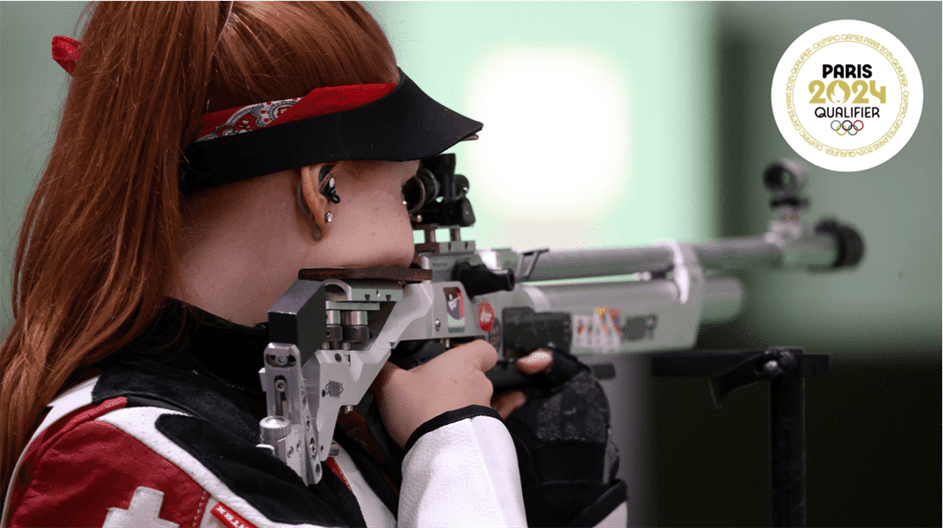
Czech Republic, Germany among countries to take spoils in Wrocław
Eight more spots at Paris 2024 have been confirmed in the sport of Shooting, as the 2022 European Championships (25m/50m) took place in Wrocław, Poland. The top-two placing athletes in each event, with the stipulation that they can't be from the same NOC, earned a spot for their country in Paris.
The four events were the Men's 50m Rifle 3 Positions, the Men's Rapid Fire Pistol, the Women's 50m Rifle 3 Positions, and the Women's 25m Pistol. Starting on the men's side, with the 50m Rifle 3 Positions, and to whittle down a large start list an elimination relay was held: there it was Norway's Simon Claussen (594) and Jon-Hermann Hegg (592) that impressed with a 1-2. With the final 36 athletes known, including three ranking points only (RPO) shooters, qualification was next, and the top eight would qualify with two hundred shots in each of the three positions, for a total of six hundred. In the end it was Lithuania's Karolis Girulis with a 593-38x, just ahead of Petr Nymbursky of the Czech Republic on 593-36x. Croatia's Miran Maricic (591) and Nymbursky's compatriot Jiri Privratsky (590-39x) were next, just ahead of Bulgarian Anton Rizov (590-38x), Slovakian Patrik Jany (590-36x). Hegg (590-34x) and Claussen (589-39x) were the last qualifiers, with five other athletes on 589 just missing out: Serhiy Kulish of Ukraine (35x), Frantisek Smetana of the Czech Republic (33x; he was an "RPO" athlete anyway), Petar Gorsa of Croatia (30x), Christoph Duerr of Switzerland (29x), and Ole Martin Halvorsen of Norway (28x). In the ranking round, with decimal scoring, the quota spots would be decided, as the top two would go to a gold medal match. Two series would be fired in each position, then the bottom two would be eliminated; a third series would be fired in the standing position, and two more would be eliminated, and then one final standing series to determine the final two of the four. Jany was down after the kneeling phase but recovered in the prone and standing section, pulling him away from Girulis (303.8) and Rizov (302.9). In the next stage, Claussen (353.7) had a poor final series to join Maricic (353.4) in being eliminated. With one more series to go, an impressive 50.9 from Hegg made him qualify in first with 408.0, and though Nymbursky faltered somewhat he still had enough to qualify second in 407.7. A good final series wasn't enough for Privratsky (407.0) to close the gap, missing out alongside Jany (404.5). Gold medal matches are held with each athlete shooting, earning two points for a higher score, with the first to sixteen winning; a tie earns one point each, but with this somewhat rare, it is practically a best-of-15 shoot-off. With the score at 12-12, Hegg shot a 10.5 while Nymbursky could only manage a 9.6, putting the Norwegian in pole position. However, in the next shot, Nymbursky hit a 10.6 while Hegg earned a 9.7, leading to one final shoot-off. The pressure got to Hegg, who hit an 8.9, and Nymbursky's 10.8 earned a gold medal for the Czech Republic. It's another quota in shooting for them, while Hegg earns Norway's first in Paris.
Moving over to the Rapid Fire Pistol, and 39 athletes, four of whom were RPOs. With the top eight going through, and with a total of 600 shots, Ukraine's Pavlo Korostylov was top in qualifying with 587 hits. Germany's Oliver Geis was next with 586, while France's Clement Bessaguet (20x) and Great Britain's Sam William Gowin (18x) on 585. Florian Peter of Germany (22x), Martin Strnad of the Czech Republic (16x), and Maksym Horodynets of Ukraine (14x) were next on 584, with the final spot going to Italy's Massimo Spinella on 581. Next would be the ranking matches, where there would be four series of five shots each (a total of twenty), and the top two would advance. The first ranking match was comprised of Bessaguet, Horodynets, Korostylov and Peter, and after two series there was a clear pattern, with everyone on seven hits bar Peter on five. Korostylov hit all five in the next series, while Bessaguet and Peter managed four, Horodynets, fatally, only hit three. In the final series, everyone would only hit three, meaning that Korostylov (fifteen) and Bessaguet (fourteen) advanced, while Horodynets (thirteen) and Peter (twelve) were eliminated. Geis, Gowin, Spinella, and Strnad took part in the second match, where consistency was key, Geis (eighteen) and Strnad (fourteen) advancing relatively easily, with Gowin (eleven) and Spinella (ten) in the cold. In the final, the fourth-placed shooter would be eliminated after four series, with a further two to eliminate third-placed, and another two to decide a winner. After three series, Bessaguet and Geis were ahead on eleven, with Korostylov on ten and Strnad on nine. Any chance the Czech had of recovering to medal was lost when he missed four in the fourth series and was eliminated on ten: Geis was in the danger zone on twelve after also missing four, but he hit a perfect ten in his next two series to eliminate Korostylov on 21. After seven series, it was 25-25, with one series left to go between France and Germany for gold, and it was Bessaguet who took all five hits to win 30-29 and become European champion. The quota spots then, go to France and Germany. The fact that a place has gone to hosts France mean their automatic host spot no longer applies; instead, a second spot will be earned based on the qualification ranking.
Moving to the women's side, and again starting with the 50m Rifle 3 Positions, it was once more a Norwegian leading the elimination relay, with Jenny Stene setting a Qualification European Record 595 hits. In qualification, with 36 athletes including eight "RPO"s, Stene improved her own record to 596, with Sarina Hitz of Switzerland coming second with 593. Rikke Maeng Ibsen of Denmark was next with a 592, and Jeanette Hegg Deustad of Norway managed 591. The Czech Republic's Veronika Blazickova (33x) and Ukraine's Daria Tykhova (31x) both managed 590, with Germany's Jolyn Beer (589-36x) and Slovenia's Ziva Dvorsak (589-32x) just edging out Austria's Nadine Ungerank (589-26x) for the final spot. The ranking match is unforgiving, and those that are not keeping pace get eliminated, as Dvorsak (304.4) and Beer (302.8) soon found out. Hitz was clearly out and finished 6th on 356.5, but who would go into the final four? It was close between Duestad and Stene, but the Norwegian let herself down with a 49.5 to finish and she was eliminated on 358.0. Duestad was too far adrift to make the top two, finishing fourth on 409.9, and Ibsen was too far in front and finished well ahead on 413.9 even with an underwhelming final series, but after Tykhova faltered in the final series Blazickova could overturn the gap to her. She did with an impressive 50.9, pipping Tykhova 411.7-410.4. In the medal match, Ibsen raced into a lead and wasn't caught, it finished an uneventful 16-6 to the Dane. The quota spots went to Denmark and the Czech Republic.
Finally, the women's 25m pistol event, which follows a similar format to the men's rapid fire pistol. 51 athletes, including four RPOs, entered qualifying, and it was Germany's Doreen Vennekamp who led the way on 592. Anna Korakaki of Greece was next on 588, while Antoaneta Kostadinova's 587-20x just pipped Camille Jedrzejewski of France's 587-19x onto 4th. Maria Varricchio of Italy (19x) and Renata Sike of Hungary (18x) both managed 583, while Joana Castelao of Portugal was safely through on 582. Poland's Klaudia Bres was through on 581-18x, pipping Ukraine's Olena Kostevych on 581-17x and Latvian Agate Rasmane on 581-16x. The first ranking match was made up of Castelao, Kostadinova, Varricchio, and Vennekamp. In the end, Vennekamp advanced simply, on seventeen, while Castelao and Varricchio tied for second with thirteen, and Kostadinova was eliminated on eleven. In the shoot-off, the Italian took it 4-2, joining Vennekamp in the final. The other ranking match had Bres, Jedrezjewski, Korakaki, and Sike. After a challenging first series it was close all the way through, but Jedrezejewski and Korakaki never recovered from hitting just one in that initial series. In the end, Bres (thirteen) and Sike (twelve) went through, with Korakaki (eleven) and Jedrezejewski (ten) eliminated. In the final, what seemed inevitable became reality. Sike hit just three from the first two series, but hit a perfect ten in her next two to get her nose in front of Varricchio, who was eliminated on twelve. While Bres and Sike were both on thirteen at this stage, the dominant Vennekamp had already worked her way into a commanding lead with eighteen. It was still a close-run thing for silver, and it went to a single shot, with Sike eliminated on seventeen and Bres surviving on eighteen. It didn't last long: after one more series, Vennekamp lead 29-21, and as victory was mathematically secured, a Golden Hit was declared and the German was European champion; Germany and Poland securing the quota spots.
The short version of this article reads that on the men's side, the 50m Rifle 3 Positions spots went to the Czech Republic and Norway, while the Rapid Fire Pistol berths went to France and Germany, while on the women's side, the 50m Rifle 3 Positions places headed to Denmark and the Czechs, while the Germans and Poland earned a place in the 25m pistol event. The next chance shooters in this category will get is the 2022 World Championship (Rifle and Pistol) in Cairo, Egypt.
Patrick Green
Writer, Totallympics News

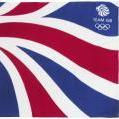

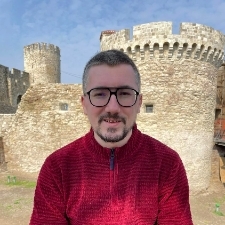


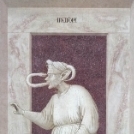

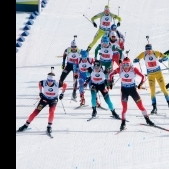
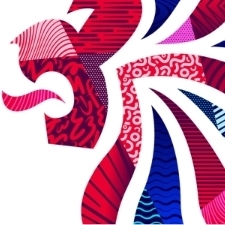

Recommended Comments
There are no comments to display.
Create an account or sign in to comment
You need to be a member in order to leave a comment
Create an account
Sign up for a new account in our community. It's easy!
Register a new accountSign in
Already have an account? Sign in here.
Sign In Now